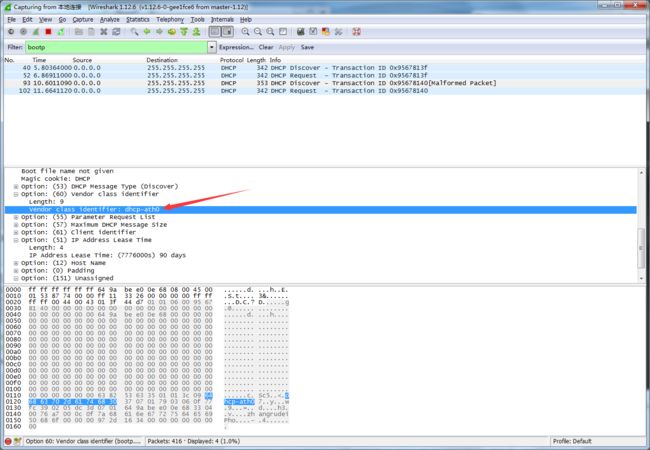- 推荐开源项目:EPPlus.Core——.NET Core下的Excel处理库
纪亚钧
推荐开源项目:EPPlus.Core——.NETCore下的Excel处理库项目地址:https://gitcode.com/gh_mirrors/ep/EPPlus.Core1、项目介绍在数据处理的日常工作中,对Excel文件的操作是一项常见的需求。而EPPlus.Core正是为此而生的一个.NETCore版本的Excel处理库。作为一个非官方的EPPlus库移植版,它允许你在跨平台的.NETC
- 使用npm创建three.js项目
ShawnWeasley
npmjavascriptarcgis前端node.js
1.安装Node.js和npm首先,需要在您的计算机上安装Node.js和npm。Node.js是一个JavaScript运行环境,而npm是一个JavaScript包管理器。npm会随Node.js一起安装,因此只需要安装Node.js即可。从Node.js的官方网站(https://nodejs.org)下载并安装适合您操作系统的版本。2.创建一个新的项目在您希望创建项目的目录下,手动创建一个
- 华为OD机试 -TLV解码(Java & Python& JS & C++ & C )
算法大师
最新华为OD机试c++java华为od华为华为od机试pythonjavascript
最新华为OD机试真题目录:点击查看目录华为OD面试真题精选:点击立即查看题目描述TLV编码是按[TagLengthValue]格式进行编码的,一段码流中的信元用Tag标识,Tag在码流中唯一不重复,Length表示信元Value的长度,Value表示信元的值。码流以某信元的Tag开头,Tag固定占一个字节,Length固定占两个字节,字节序为小端序。现给定TLV格式编码的码流,以及需要解码的信元T
- Android 应用添加系统签名权限介绍
佳哥的技术分享
android
一、前言Android应用添加系统签名就能获取到系统权限调用一些系统接口,添加系统签名的方式主要包括:在AndroidStudio中配置签名文件生成apk和在源码目录编译添加系统签名生成apk。本文介绍的都是一些基础的签名知识,后续延伸介绍相关权限内容。有兴趣的可以进行了解。二、Android应用添加系统签名权限的几种方式介绍1、在AndroidStudio添加系统签名文件对应需要签名的modul
- 无需插件,OmniGen 凭文本指令读懂图像,多样生成随心掌控
算家云
模型构建python开发语言AI模型图像生成文字转图像人工智能OmniGen
一、介绍OmniGen是一个统一的图像生成模型,可用于执行各种任务,包括但不限于文本到图像生成、主题驱动生成、身份保留生成、图像编辑和图像条件生成。OmniGen不需要额外的插件或操作,它可以根据文本提示自动识别输入图像中的特征(例如,所需的对象、人体姿势、深度映射)可以通过OmniGen灵活地控制图像生成:引用表达式生成:你可以输入多个图像,并使用简单的通用语言来引用这些图像中的对象。OmniG
- WAVGATvcu控制器应用层软件:策略开发与实际应用
NhTvp94c
程序人生
WAVGATvcu控制器应用层软件,策略说明。整车控制器策略开发,应用层软件,在售车型最新版本软件。按照ASPIC开发流程开发,基于AUTOSAR架构开发,满足功能安全ASILC。模型和策略说明可以分开出。都是量产车型在用,不是仿真WAVGATvcu控制器应用层软件:策略开发与实际应用引言WAVGATvcu控制器应用层软件是一款在汽车工业中备受瞩目的软件产品,它不仅严格按照ASPIC(汽车电子系统
- 股票量化交易进阶:构建回测框架backtrader
InUnix
python开发语言
在量化交易领域,回测是一个重要的环节。回测框架可以帮助我们验证投资策略的有效性,并评估其在历史数据上的表现。backtrader是一个功能强大且灵活的Python回测框架,它为量化交易提供了丰富的工具和功能。本文将介绍如何使用backtrader构建一个简单的回测系统,并给出相应的源代码示例。首先,我们需要安装backtrader库。可以使用pip命令进行安装:pipinstallbacktrad
- Python延时函数详解及实例代码
HackDyno
pythonjava前端Python
Python延时函数详解及实例代码在Python编程中,有时我们需要在程序中添加延时,以便在执行特定操作之前等待一段时间。延时函数允许我们在代码中创建一个暂停的时间间隔。本文将详细介绍Python中的延时函数,并提供一些实例代码供参考。Python中的延时函数可以通过time模块来实现。time模块是Python标准库中的一部分,提供了与时间相关的函数和方法。我们可以使用time.sleep()函
- Python中删除文件和目录
湫兮之风
pythonjava开发语言
python中分别提供os包下的os.remove()与shutil包下的shutil.rmtree()函数,其中os.remove()的主要作用是删除一个具体的文件,shutil.rmtree()主要作用是删除一个具体的目录。os.remove()这个函数需要一个参数,即要删除的文件的路径。importosfile_path="/path/to/your/file.txt"#将此处的路径替换为你
- ubuntu 安装 docker
2301_78094384
ubuntudockerlinux
打开网站:Ubuntu|DockerDocs卸载冲突包forpkgindocker.iodocker-docdocker-composedocker-compose-v2podman-dockercontainerdrunc;dosudoapt-getremove$pkg;done运行以下命令#AddDocker'sofficialGPGkey:sudoapt-getupdatesudoapt-g
- Python path模块
倾听冷暖
python策略模式开发语言
在Python中,你可能说的是os.path模块(它属于os模块下专门处理路径相关操作的部分)或者是pathlib模块(Python标准库中用于面向对象风格的路径操作模块),以下分别为你详细介绍这两种与路径相关的内容:os.path模块os.path模块提供了一系列用于处理文件路径的实用函数,能帮助开发者方便地操作路径、获取路径相关信息等,且可以适配不同的操作系统(Windows、Linux、ma
- ue5 在一个蒙太奇的上半身插槽放两段动画,用片段1,2作为区分。播放动画蒙太奇,自由选择片段1,2
mengzhi啊
ue5
如图在一个蒙太奇中,上半身插槽放入两段动画,新建1,2片段。拖到如图位置角色蓝图运行成功,只播放第2段动画
- 大数据湖仓一体架构未来思考
王知无(import_bigdata)
架构
湖仓一体架构是最近1-2年时间开始频繁出现在数据开发领域的新名词。也是各大公司竞相投入的对象。网络上关于湖仓一体架构的实践文章很多,看得也很眼花缭乱。我们今天站在一个「接地气」的角度,来说一说湖仓一体架构中未来需要关注的核心框架有哪些。文章内容也没有经过仔细的斟酌,完全是一点不成熟的想法,而且站的角度不是高屋建瓴的而是从下往上的。一个基本判断是湖仓一体架构在形式上不止一种大家可以从网上看到很多关于
- Elasticsearch 中的节点(比如共 20 个),其中的10 个选了一个 master,另外 10 个选了另一个 master,怎么办?思维导图 代码示例(java 架构)
用心去追梦
elasticsearchjava架构
在Elasticsearch中,如果出现集群分裂(Split-brain)的情况,即一部分节点选举了一个Master节点,而另一部分节点选举了另一个Master节点,这会导致数据不一致和集群不可用。Elasticsearch通过配置discovery.seed_hosts和cluster.initial_master_nodes参数来避免这种情况,并确保有足够的节点参与选举以达成共识。为了防止Sp
- [cg] UE5 调试技巧
DXT00
ue5
UE中rhi命令的提交是在render线程,而graphicsapi真正的执行是在rhi线程,今天想看下rhi的底层调用,但由于是通过task执行的,无法获取到renderthread传入的地方,调试起来不太方便。可通过开启下面的命令来调试1.让RDG进入立即执行模式:;Uncommenttogetrendergraphexecutingpassesastheygetcreatedtoeasily
- iOS 性能优化:实战案例分享
忆江南的博客
ios
摘要:本文将深入探讨iOS性能优化的重要性,并通过一系列实际开发案例,展示如何解决常见的性能问题,包括内存管理、CPU性能、网络性能、UI性能和启动性能等方面的优化,帮助iOS开发者打造更流畅、高效的应用程序。一、引言在当今竞争激烈的移动应用市场中,性能优化对于iOS应用的成功至关重要。用户期望应用程序能够快速启动、流畅运行,并且不会出现卡顿或崩溃的情况。然而,随着应用功能的增加和复杂性的提升,性
- fgets、scanf存字符串应用
malloc-free
c语言
题目1夺旗(英语:Capturetheflag,简称CTF)在计算机安全中是一种活动,当中会将“旗子”秘密地埋藏于有目的的易受攻击的程序或网站。参赛者从其他参赛者或主办方偷去旗子。非常崇拜探姬的小学妹最近迷上了CTF,学长给了她一个压缩包,让她找到其中的flag并提交。她今天终于破解了压缩包的密码,但解压后她却发现,里面竟然有足足100个txt文件!她使用Ctrl+F大法搜索过后,发现了这些txt
- 总结 处理输入字符串gets fgets scanf + 例题
malloc-free
算法字符串的输入
总结gets(str);gets遇到回车符时结束,也可以读入多行字符串(包含空格),比较方便,但是不安全。不会存入回车符,缓冲区中也不会遗留换行符。后面又要从键盘给字符变量赋值的话就不需要吸收回车清空缓冲区了fgets(str,10000,stdin);fgets函数可以直接读取含空格的字符串。遇到回车或EOF时结束,可以存入回车,也可以循环读入多行字符串。并且fgets函数可以指定读取的最大字符
- 手把手教你 AI 顾投:在 Ollama 中使用 Python 调用金融 API 服务
老余捞鱼
AI探讨与学习人工智能python金融llama
作者:老余捞鱼原创不易,转载请标明出处及原作者。写在前面的话:尽管Ollama本身不是一个大型语言模型(LLM)开发工具,而是一个LLM的平台。但它最近宣布了其系统中直接使用工具调用的功能,本文主要介绍了最新版本的主要更新,特别是关于功能调用的使用,并演示了如何在Ollama中使用Python调用外部API服务。一、部署Ollama在本地运行1.1设置开发环境在开始编写代码之前,最好的做法是建立一
- SQL数据分析(简单版)
编程星空
扩展知识sql数据库
一、常见数据库分类(1)关系型数据库采用关系模型组织数据的数据库,以行和列的形式存储数据,形成数据表,一组数据表组成了数据库(2)非关系型数据库非关系型数据库在严格意义上不是一种数据库,应该是一种数据结构化存储方法的集合,可以是文档或者键值对等。二、数据库常用功能(1)表数据表是数据库中存储数据的基本组成单位,例如用户信息表、订单表、采购表等。(2)查询查询是数据库中应用最多的对象之一,最常用的功
- 生命周期函数——created、onload、mounted、updated的执行顺序
编程星空
前端javascriptvue.js
created和onload是非常重要的生命周期函数,涉及到组件初始化和数据绑定的顺序。created:(1)created是在Vue实例创建完成后立即被执行的。(2)在created中我们可以访问到组件的数据和方法,并进行一些初始化操作。此时的this指向VueComponent(其中包含所有的组件数据和方法)(3)通常我们会在created函数中发送请求获取数据,并将其存储在组件的data中。
- “AI 自动化效能评估系统:开启企业高效发展新征程
上海拔俗网络
java团队开发
在当今数字化飞速发展的时代,企业面临着日益激烈的市场竞争,如何提升效率、降低成本成为了企业生存与发展的关键。AI自动化效能评估系统应运而生,它如同一把智能钥匙,为企业开启了高效发展的新征程。AI自动化效能评估系统,简单来说,就是利用人工智能技术对企业的各项业务流程、生产环节以及员工工作表现等进行全方位、自动化的评估。它能够快速收集海量的数据,并通过先进的算法模型对这些数据进行深度分析,从而精准地判
- 网口工业相机丢包根因及排查方法
爱兔子的萝卜
海康工业相机相机数码相机
网口工业相机丢包根因及排查方法文章目录网口工业相机常由于网络波动影响导致图像出现横黑线、全黑情况,这种情况常被称为丢包,以下向大家介绍什么是“包”,“包”怎么丢的,如何判断丢包等。一、网口相机数据包协议介绍——丢包的根因UDP(UserDatagramProtocol)和TCP(TransmissionControlProtocol)是两种不同的网络传输协议,它们在数据传输的可靠性、速度和应用场景
- 深入剖析:Unix 系统管理的高级实践与技巧
Echo_Wish
让你快速入坑运维运维探秘unix服务器
深入剖析:Unix系统管理的高级实践与技巧作为一名系统管理员,掌握Unix系统的基础操作只是起点。高级实践要求你不仅能够高效处理复杂任务,还需优化系统性能、自动化日常操作,并确保系统的安全性与可靠性。本文将带你探讨Unix系统管理的一些高级实践,结合实际案例与代码,帮助你提升技能。一、系统性能优化:从监控到调优1.性能监控:识别瓶颈性能优化的第一步是监控系统,找出瓶颈所在。Unix提供了一些强大的
- Easysearch Rollup 使用指南
数据库搜索引擎
背景在现代数据驱动的世界中,时序数据的处理变得越来越重要。无论是监控系统、日志分析,还是物联网设备的数据收集,时序数据都占据了大量的存储空间。随着时间的推移,这些数据的存储成本和管理复杂度也在不断增加。为了解决这一问题,Rollup技术应运而生。本文将带你深入了解Rollup的概念、优势以及如何在Easysearch中使用Rollup来优化时序数据的存储和查询。什么是Rollup?Rollup是一
- 如何从0开始写一个操作系统
c后端
本贴用来记录作者用c语言写一个操作系统,主要参考《操作系统真相还原》一书写的,同时也会对书里的代码和linux进行对比,尽量看一下现代操作系统中是如何实现的。原书的代码https://github.com/yifengyou/os-elephant/tree/master我会挑一些说说传统的操作系统课一般从内存,虚拟化等等方面讲起,因为是自己实现操作系统,肯定不能一上来就写开始写内存管理这种大活,
- 《小型开发者在鸿蒙Next上的成本与收益平衡之道》
深度学习人工智能算法
学习成本鸿蒙Next系统与安卓、iOS在系统架构、API等方面存在一定差异,小型开发者需要花费时间和精力去熟悉和掌握。例如,开发者需要学习鸿蒙的分布式架构、原生智能等新技术概念和开发方法,这可能需要参加培训课程、阅读文档或在社区中与其他开发者交流学习。开发成本功能越复杂、UI/UX设计要求越高,开发成本就越高。小型开发者可能需要投入更多的人力和时间来进行应用的设计和开发。如果开发者经验不足,开发效
- LoadRunner如何监控Linux系统资源
使用LoadRunner监控Linux系统资源的步骤详解LoadRunner是一个广泛使用的性能测试工具,支持对Web应用程序、服务器和整个基础设施进行负载测试。在监控Linux系统资源方面,LoadRunner通过集成监控代理(Agent)来收集并显示有关CPU、内存、磁盘等系统资源的详细信息。以下是通过LoadRunner监控Linux系统资源的详细步骤:1.安装LoadRunnerAgent
- linux中启动rpc.rstat监控
在Linux中启动rpc.rstatd监控服务的步骤详解rpc.rstatd服务是一个用于收集远程主机性能统计信息的服务,常见于UNIX类系统中,通常与rpcbind一起工作,提供系统的CPU、内存、磁盘等资源的实时监控数据。在Linux系统中,启用并配置rpc.rstatd服务可以帮助管理员实时获取系统的性能信息,便于后续的监控和分析。接下来,将详细介绍如何在Linux中启动并配置rpc.rst
- PyMySQL 详解
一只猪皮怪5
SQL数据库mysqlpython
PyMySQL是一个纯Python实现的MySQL客户端操作库,支持事务、存储过程、批量执行等。PyMySQL遵循Python数据库APIv2.0规范,并包含了pure-PythonMySQL客户端库。安装pipinstallPyMySQL创建数据库连接importpymysqlconnection=pymysql.connect(host='localhost',port=3306,user='
- 数据采集高并发的架构应用
3golden
.net
问题的出发点:
最近公司为了发展需要,要扩大对用户的信息采集,每个用户的采集量估计约2W。如果用户量增加的话,将会大量照成采集量成3W倍的增长,但是又要满足日常业务需要,特别是指令要及时得到响应的频率次数远大于预期。
&n
- 不停止 MySQL 服务增加从库的两种方式
brotherlamp
linuxlinux视频linux资料linux教程linux自学
现在生产环境MySQL数据库是一主一从,由于业务量访问不断增大,故再增加一台从库。前提是不能影响线上业务使用,也就是说不能重启MySQL服务,为了避免出现其他情况,选择在网站访问量低峰期时间段操作。
一般在线增加从库有两种方式,一种是通过mysqldump备份主库,恢复到从库,mysqldump是逻辑备份,数据量大时,备份速度会很慢,锁表的时间也会很长。另一种是通过xtrabacku
- Quartz——SimpleTrigger触发器
eksliang
SimpleTriggerTriggerUtilsquartz
转载请出自出处:http://eksliang.iteye.com/blog/2208166 一.概述
SimpleTrigger触发器,当且仅需触发一次或者以固定时间间隔周期触发执行;
二.SimpleTrigger的构造函数
SimpleTrigger(String name, String group):通过该构造函数指定Trigger所属组和名称;
Simpl
- Informatica应用(1)
18289753290
sqlworkflowlookup组件Informatica
1.如果要在workflow中调用shell脚本有一个command组件,在里面设置shell的路径;调度wf可以右键出现schedule,现在用的是HP的tidal调度wf的执行。
2.designer里面的router类似于SSIS中的broadcast(多播组件);Reset_Workflow_Var:参数重置 (比如说我这个参数初始是1在workflow跑得过程中变成了3我要在结束时还要
- python 获取图片验证码中文字
酷的飞上天空
python
根据现成的开源项目 http://code.google.com/p/pytesser/改写
在window上用easy_install安装不上 看了下源码发现代码很少 于是就想自己改写一下
添加支持网络图片的直接解析
#coding:utf-8
#import sys
#reload(sys)
#sys.s
- AJAX
永夜-极光
Ajax
1.AJAX功能:动态更新页面,减少流量消耗,减轻服务器负担
2.代码结构:
<html>
<head>
<script type="text/javascript">
function loadXMLDoc()
{
.... AJAX script goes here ...
- 创业OR读研
随便小屋
创业
现在研一,有种想创业的想法,不知道该不该去实施。因为对于的我情况这两者是矛盾的,可能就是鱼与熊掌不能兼得。
研一的生活刚刚过去两个月,我们学校主要的是
- 需求做得好与坏直接关系着程序员生活质量
aijuans
IT 生活
这个故事还得从去年换工作的事情说起,由于自己不太喜欢第一家公司的环境我选择了换一份工作。去年九月份我入职现在的这家公司,专门从事金融业内软件的开发。十一月份我们整个项目组前往北京做现场开发,从此苦逼的日子开始了。
系统背景:五月份就有同事前往甲方了解需求一直到6月份,后续几个月也完
- 如何定义和区分高级软件开发工程师
aoyouzi
在软件开发领域,高级开发工程师通常是指那些编写代码超过 3 年的人。这些人可能会被放到领导的位置,但经常会产生非常糟糕的结果。Matt Briggs 是一名高级开发工程师兼 Scrum 管理员。他认为,单纯使用年限来划分开发人员存在问题,两个同样具有 10 年开发经验的开发人员可能大不相同。近日,他发表了一篇博文,根据开发者所能发挥的作用划分软件开发工程师的成长阶段。
初
- Servlet的请求与响应
百合不是茶
servletget提交java处理post提交
Servlet是tomcat中的一个重要组成,也是负责客户端和服务端的中介
1,Http的请求方式(get ,post);
客户端的请求一般都会都是Servlet来接受的,在接收之前怎么来确定是那种方式提交的,以及如何反馈,Servlet中有相应的方法, http的get方式 servlet就是都doGet(
- web.xml配置详解之listener
bijian1013
javaweb.xmllistener
一.定义
<listener>
<listen-class>com.myapp.MyListener</listen-class>
</listener>
二.作用 该元素用来注册一个监听器类。可以收到事件什么时候发生以及用什么作为响
- Web页面性能优化(yahoo技术)
Bill_chen
JavaScriptAjaxWebcssYahoo
1.尽可能的减少HTTP请求数 content
2.使用CDN server
3.添加Expires头(或者 Cache-control) server
4.Gzip 组件 server
5.把CSS样式放在页面的上方。 css
6.将脚本放在底部(包括内联的) javascript
7.避免在CSS中使用Expressions css
8.将javascript和css独立成外部文
- 【MongoDB学习笔记八】MongoDB游标、分页查询、查询结果排序
bit1129
mongodb
游标
游标,简单的说就是一个查询结果的指针。游标作为数据库的一个对象,使用它是包括
声明
打开
循环抓去一定数目的文档直到结果集中的所有文档已经抓取完
关闭游标
游标的基本用法,类似于JDBC的ResultSet(hasNext判断是否抓去完,next移动游标到下一条文档),在获取一个文档集时,可以提供一个类似JDBC的FetchSize
- ORA-12514 TNS 监听程序当前无法识别连接描述符中请求服务 的解决方法
白糖_
ORA-12514
今天通过Oracle SQL*Plus连接远端服务器的时候提示“监听程序当前无法识别连接描述符中请求服务”,遂在网上找到了解决方案:
①打开Oracle服务器安装目录\NETWORK\ADMIN\listener.ora文件,你会看到如下信息:
# listener.ora Network Configuration File: D:\database\Oracle\net
- Eclipse 问题 A resource exists with a different case
bozch
eclipse
在使用Eclipse进行开发的时候,出现了如下的问题:
Description Resource Path Location TypeThe project was not built due to "A resource exists with a different case: '/SeenTaoImp_zhV2/bin/seentao'.&
- 编程之美-小飞的电梯调度算法
bylijinnan
编程之美
public class AptElevator {
/**
* 编程之美 小飞 电梯调度算法
* 在繁忙的时间,每次电梯从一层往上走时,我们只允许电梯停在其中的某一层。
* 所有乘客都从一楼上电梯,到达某层楼后,电梯听下来,所有乘客再从这里爬楼梯到自己的目的层。
* 在一楼时,每个乘客选择自己的目的层,电梯则自动计算出应停的楼层。
* 问:电梯停在哪
- SQL注入相关概念
chenbowen00
sqlWeb安全
SQL Injection:就是通过把SQL命令插入到Web表单递交或输入域名或页面请求的查询字符串,最终达到欺骗服务器执行恶意的SQL命令。
具体来说,它是利用现有应用程序,将(恶意)的SQL命令注入到后台数据库引擎执行的能力,它可以通过在Web表单中输入(恶意)SQL语句得到一个存在安全漏洞的网站上的数据库,而不是按照设计者意图去执行SQL语句。
首先让我们了解什么时候可能发生SQ
- [光与电]光子信号战防御原理
comsci
原理
无论是在战场上,还是在后方,敌人都有可能用光子信号对人体进行控制和攻击,那么采取什么样的防御方法,最简单,最有效呢?
我们这里有几个山寨的办法,可能有些作用,大家如果有兴趣可以去实验一下
根据光
- oracle 11g新特性:Pending Statistics
daizj
oracledbms_stats
oracle 11g新特性:Pending Statistics 转
从11g开始,表与索引的统计信息收集完毕后,可以选择收集的统信息立即发布,也可以选择使新收集的统计信息处于pending状态,待确定处于pending状态的统计信息是安全的,再使处于pending状态的统计信息发布,这样就会避免一些因为收集统计信息立即发布而导致SQL执行计划走错的灾难。
在 11g 之前的版本中,D
- 快速理解RequireJs
dengkane
jqueryrequirejs
RequireJs已经流行很久了,我们在项目中也打算使用它。它提供了以下功能:
声明不同js文件之间的依赖
可以按需、并行、延时载入js库
可以让我们的代码以模块化的方式组织
初看起来并不复杂。 在html中引入requirejs
在HTML中,添加这样的 <script> 标签:
<script src="/path/to
- C语言学习四流程控制if条件选择、for循环和强制类型转换
dcj3sjt126com
c
# include <stdio.h>
int main(void)
{
int i, j;
scanf("%d %d", &i, &j);
if (i > j)
printf("i大于j\n");
else
printf("i小于j\n");
retu
- dictionary的使用要注意
dcj3sjt126com
IO
NSDictionary *dict = [NSDictionary dictionaryWithObjectsAndKeys:
user.user_id , @"id",
user.username , @"username",
- Android 中的资源访问(Resource)
finally_m
xmlandroidStringdrawablecolor
简单的说,Android中的资源是指非代码部分。例如,在我们的Android程序中要使用一些图片来设置界面,要使用一些音频文件来设置铃声,要使用一些动画来显示特效,要使用一些字符串来显示提示信息。那么,这些图片、音频、动画和字符串等叫做Android中的资源文件。
在Eclipse创建的工程中,我们可以看到res和assets两个文件夹,是用来保存资源文件的,在assets中保存的一般是原生
- Spring使用Cache、整合Ehcache
234390216
springcacheehcache@Cacheable
Spring使用Cache
从3.1开始,Spring引入了对Cache的支持。其使用方法和原理都类似于Spring对事务管理的支持。Spring Cache是作用在方法上的,其核心思想是这样的:当我们在调用一个缓存方法时会把该方法参数和返回结果作为一个键值对存放在缓存中,等到下次利用同样的
- 当druid遇上oracle blob(clob)
jackyrong
oracle
http://blog.csdn.net/renfufei/article/details/44887371
众所周知,Oracle有很多坑, 所以才有了去IOE。
在使用Druid做数据库连接池后,其实偶尔也会碰到小坑,这就是使用开源项目所必须去填平的。【如果使用不开源的产品,那就不是坑,而是陷阱了,你都不知道怎么去填坑】
用Druid连接池,通过JDBC往Oracle数据库的
- easyui datagrid pagination获得分页页码、总页数等信息
ldzyz007
var grid = $('#datagrid');
var options = grid.datagrid('getPager').data("pagination").options;
var curr = options.pageNumber;
var total = options.total;
var max =
- 浅析awk里的数组
nigelzeng
二维数组array数组awk
awk绝对是文本处理中的神器,它本身也是一门编程语言,还有许多功能本人没有使用到。这篇文章就单单针对awk里的数组来进行讨论,如何利用数组来帮助完成文本分析。
有这么一组数据:
abcd,91#31#2012-12-31 11:24:00
case_a,136#19#2012-12-31 11:24:00
case_a,136#23#2012-12-31 1
- 搭建 CentOS 6 服务器(6) - TigerVNC
rensanning
centos
安装GNOME桌面环境
# yum groupinstall "X Window System" "Desktop"
安装TigerVNC
# yum -y install tigervnc-server tigervnc
启动VNC服务
# /etc/init.d/vncserver restart
# vncser
- Spring 数据库连接整理
tomcat_oracle
springbeanjdbc
1、数据库连接jdbc.properties配置详解 jdbc.url=jdbc:hsqldb:hsql://localhost/xdb jdbc.username=sa jdbc.password= jdbc.driver=不同的数据库厂商驱动,此处不一一列举 接下来,详细配置代码如下:
Spring连接池
- Dom4J解析使用xpath java.lang.NoClassDefFoundError: org/jaxen/JaxenException异常
xp9802
用Dom4J解析xml,以前没注意,今天使用dom4j包解析xml时在xpath使用处报错
异常栈:java.lang.NoClassDefFoundError: org/jaxen/JaxenException异常
导入包 jaxen-1.1-beta-6.jar 解决;
&nb
